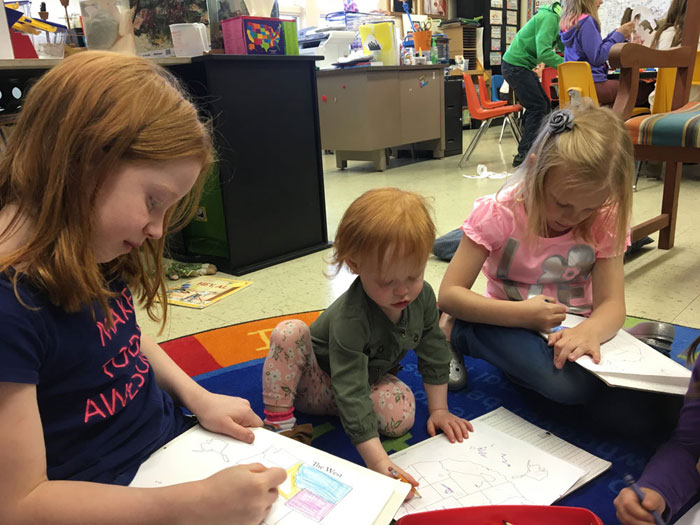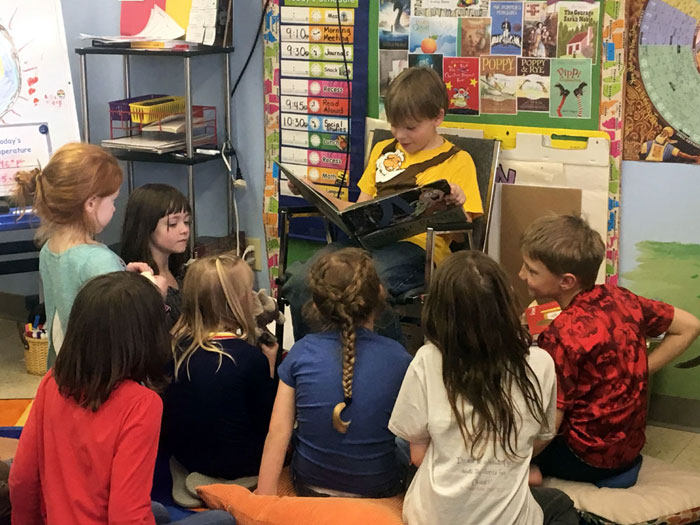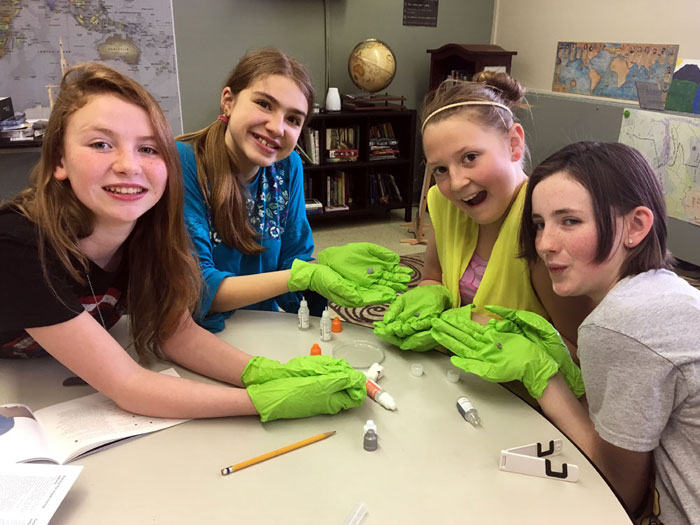I. The Grammar Phase (K–4th)
Young people have to begin at the beginning. At the first stage of education students must master the basics, or the "grammar," of every subject. They must learn to read, using the parts of words, or phonemes, in order to master the words themselves. They must know the grammar of their own language, which means correct spelling and proper word usage. They learn the people, places, and events of world history. They gain a basic "number sense" by manipulating numbers in various mathematical arrangements. Students learn to read music, to sing and play basic instruments, and to listen closely to various genres of music. They learn to recognize and to classify various parts of the physical universe. At this juncture education relies heavily on young people's memory. By nature children love to memorize things. Simply ask a child to repeat back the details of a story you have just read him and watch his face light up!
II. The Logic Phase (5th–8th)
Once students have gained a pretty good handle on the grammar of various subjects, they move into the "logic" stage of education. Since this level corresponds to the onset of adolescence, it might also be called the "argumentative" stage." Though students continue to study the facts of the various disciplines, they now have the intellectual capacity to call those facts into question or to wrestle with them. Indeed, their nature prompts them to do so, as any parent of an adolescent will testify. Let us take an example from a lesson on the Civil War. Teacher: "O. K., so Lincoln emancipated only the slaves in the seceded states and left those in the border states in bondage. Was this a good decision or a bad decision?" Then the class debates for a time. Afterwards, the teacher, using some of the arguments made by the students, explains Lincoln's policy of Emancipation. Logic, or argumentation, is applicable to all subjects. A good mathematics teacher will ask a student when venturing a solution to a problem to "defend" his answer.
III. The Rhetorical Stage (9th–12th)
High school should be considered the third part of the trivium, the "rhetorical" stage. Having the facts at their disposal and being able to wrestle with them, students will now be able
to express themselves with increasing grace and at considerable length, both in speech and in writing. They will learn to make coherent literary, historical, mathematical, and scientific
arguments. They are ready to tackle difficult readings and problems. Too often in this country we wait until college to challenge young people with meaningful intellectual work, numbing
their minds with worksheets and starving their souls by using "teacher edition" approaches to even the greatest works of literature. Once some of my own students asked me whether
what we were going to do in my class was just read books and talk about them. "Yes, as well as write papers and take a test or two." "No worksheets?" asked one student. "No," I responded,
"because the problems of the world do not come to you in the form of a worksheet." Instead, you must understand the situation, formulate a response, and put that response into action.
By the time young people reach their teens they are ready to explore the great questions posed by the moral and physical worlds in order to reflect on the nature of their humanity, to
understand their place in the cosmos, and to articulate convincingly their findings. Such an undertaking requires them to read and to discuss the "classics," which contain the best that has
been thought and said and done by the great thinkers and heroes of the past. How otherwise should we prepare them for the world they will face and the positions of responsibility they
will inherit?




